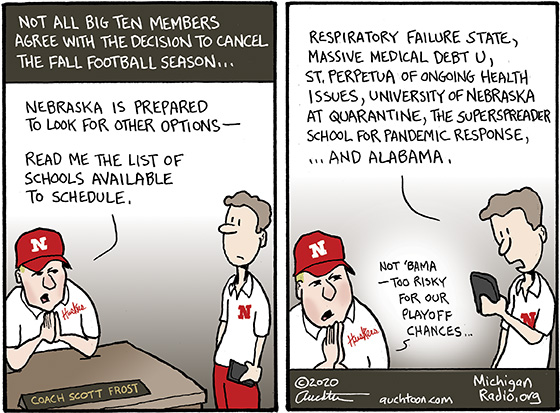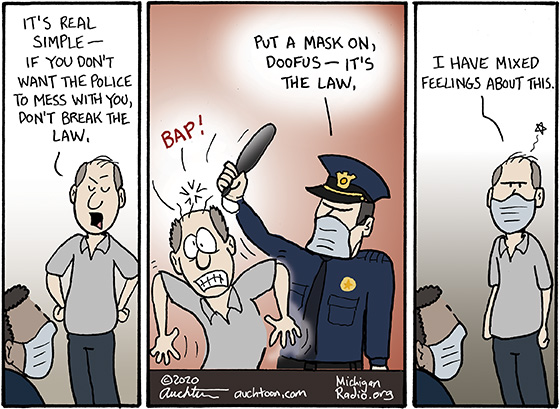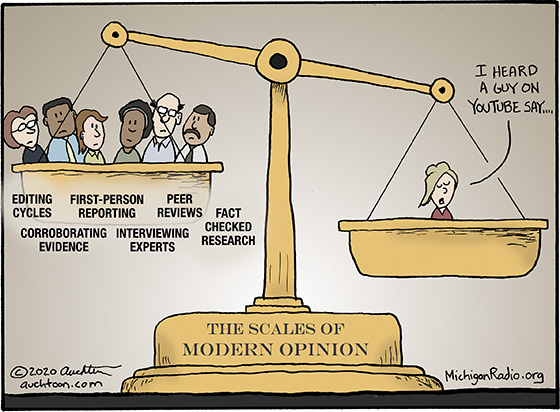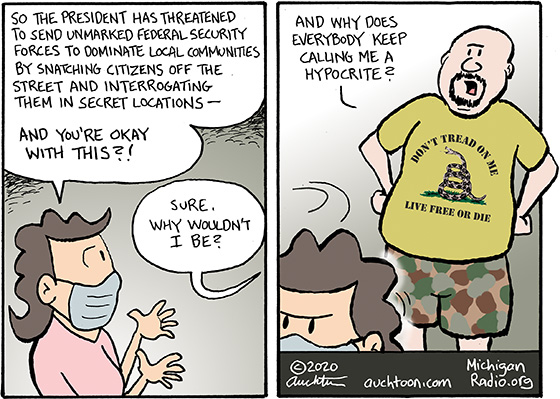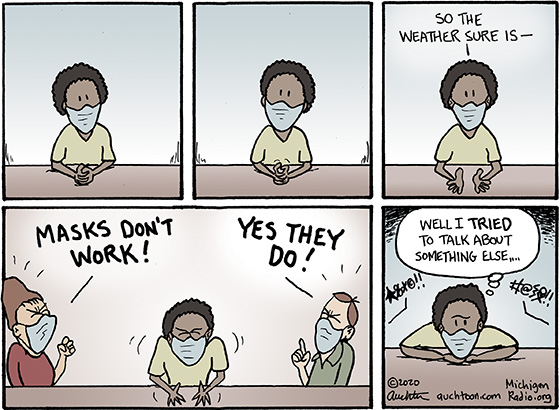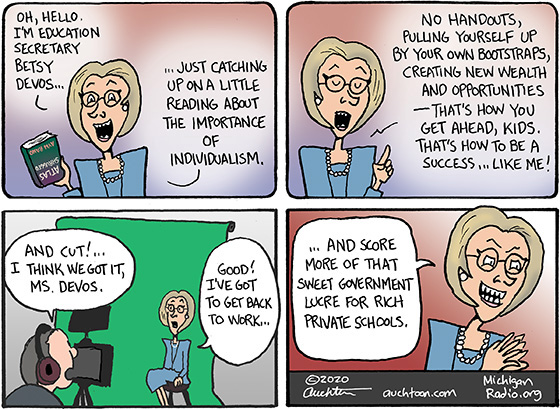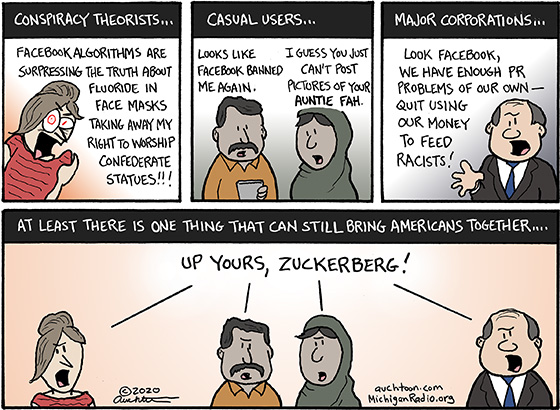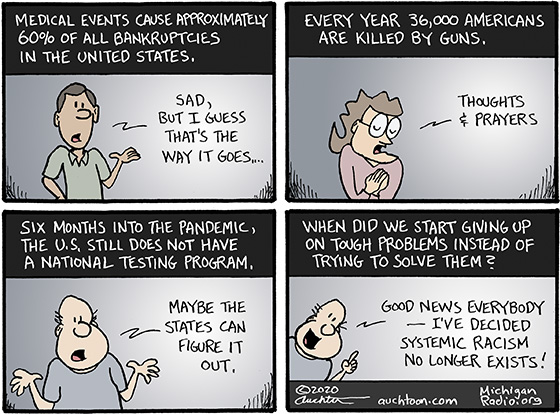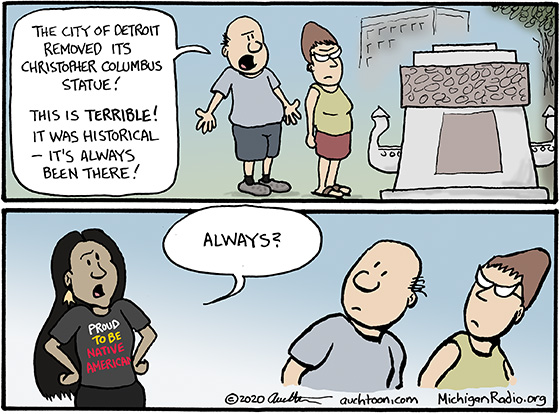What to Do in a Public Health Crisis
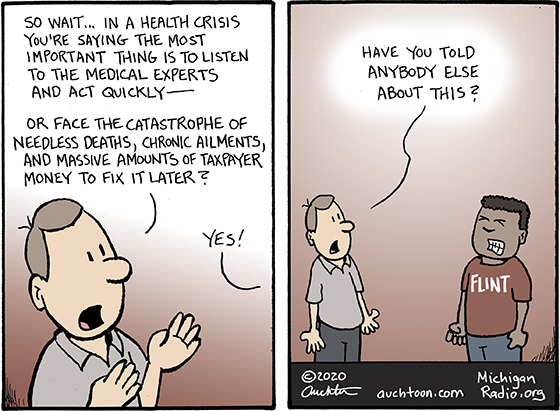
I had a completely different cartoon mapped out when I sat down to draw, and then this story broke: Michigan reaches $600M settlement in Flint water crisis.
So I started again from scratch. It didn’t take me long to find parallels between the current coronavirus pandemic and the ongoing Flint water crisis — how Flint was kind of a “canary in the coal mine” for what we as a nation are experiencing now. Well, I suppose it’d be more correct to say that the Flint water crisis could have been a canary in the coal mine. (We all would have needed to notice and care that the canary died for the analogy to play through.)
But here’s what I really find notable: There are three basic types of consequences for these tragedies — death, chronic health conditions, and money. Which one is most likely to motivate people?
I’d say that evidence shows death is the least effective. We can’t (or simply don’t want to) relate to it. It’s too abstract, especially as numbers grow. Chronic health conditions are a bit more tangible — we can all imagine being sick. Perhaps not lead poisoning or lung damage sick, but sick.
But I think the best motivator is money. More specifically, our money, taxpayer money! The idea of somebody wasting our hard-earned money is pretty much what motivated this country to be a country. Perhaps we can channel that. A completely avoidable health crisis has now cost Michigan taxpayers $1 billion (this recent $600 million added to the $400 million already spent). That would seem like enough to get us to listen to medical experts.
